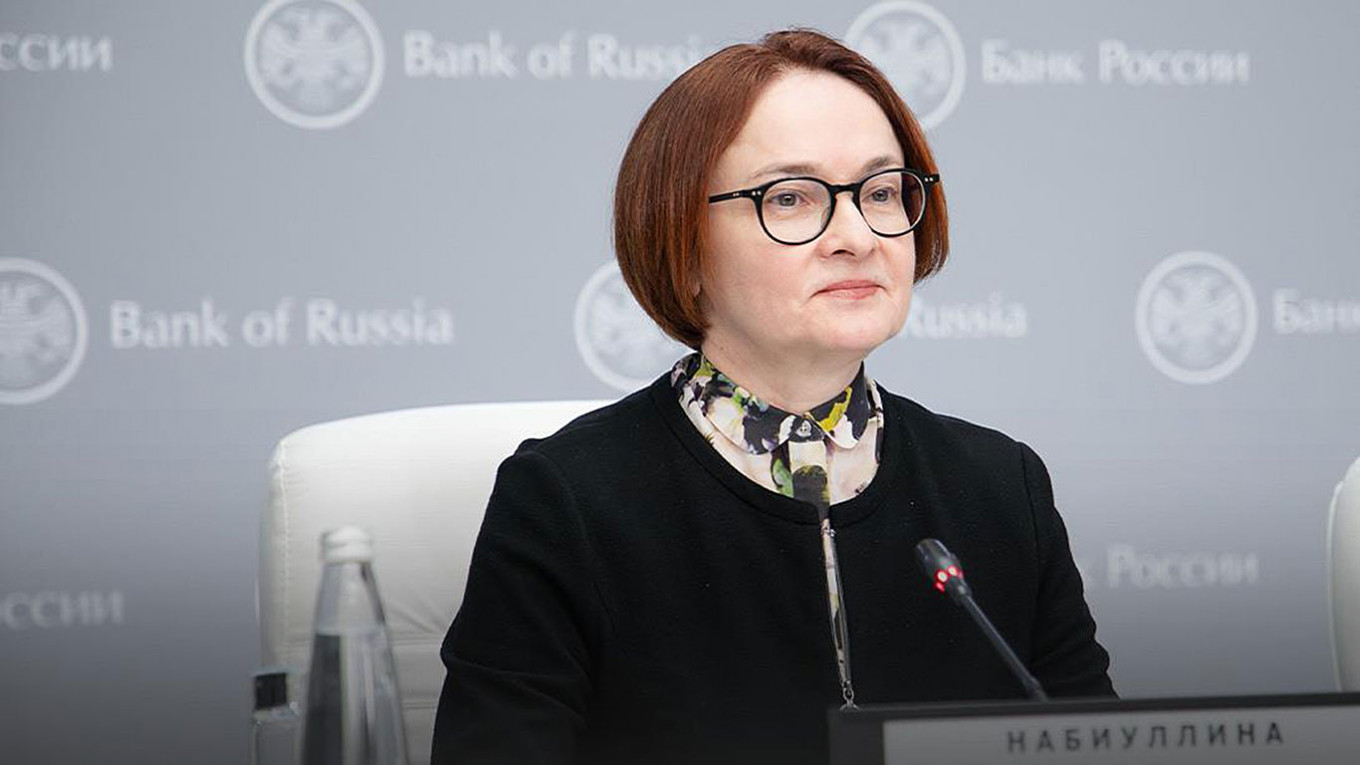
Russia’s Central Bank said Friday it was cutting its key interest rate for a second straight time as risks of price rises and financial instability were no longer rising.
The Bank of Russia said it was slashing the rate from 17% to 14% from next week, a greater cut than predicted by many analysts.
It said this was because “price and financial stability risks (are) no longer on the rise,” following a period of emergency measures due to Russia’s military action in Ukraine.
The bank had hiked the rate to 20% in late February, four days after President Vladimir Putin sent in troops.
This came after Western nations imposed sanctions that largely cut Russia’s financial sector off from the global economy.
The Central Bank cut the interest rate to 17% earlier this month, however, saying that risks to financial stability had “ceased to increase” for now.
Analysts surveyed by Russian media had largely predicted a 15% cut for the latest rate decision.
“It now looks likely that rates will fall towards 10% by year end,” Liam Peach, an analyst at Renaissance Capital, said in a note after the decision.
The Central Bank nevertheless struck a cautious note, saying the country’s economy faces a “challenging” situation due to sanctions and could see a sharper decline than its base scenario predicts.
‘Colossal uncertainty’
“We are in a zone of colossal uncertainty,” both in terms of supply and demand, the Bank’s Governor Elvira Nabiullina told journalists after the announcement.
Ratings agencies have downgraded Russia and warned that payments of dollar-denominated debt in local currency would constitute a sovereign default, the country’s first in decades.
Nabiullina insisted that the Finance Ministry has resources to make such payments and “from the economic point of view, there cannot be any talk of default,” while admitting that there were “difficulties with payments that we see.”
“I hope that will all also pass and end with success,” she said.
The Central Bank said that imports to Russia are declining more markedly than exports, due to external trade and financial restrictions.
It released a baseline forecast for this year for imports to fall by up to 36.5% and exports by up to 21%.
It said Friday that while still high, current growth rates of consumer prices have “slowed significantly” from a peak in March, due to a “strengthening of the ruble and a cooling of consumer activity.”
The ruble plunged to historic lows against the dollar and the euro in March, from which it has since rebounded.
The Central Bank predicted that inflation would peak at up to 23%, before slowing next year.
The bank has set an inflation target of four percent, and vowed Friday its monetary policy “will ensure a return of inflation to target in 2024.”
While concerned about inflation, the bank said its monetary policy would also focus on the need for a “structural transformation of the economy” given the changed circumstances.
The next meeting to discuss a rate change will be June 10, as the bank said it sees room for further rate reduction this year.
Analysts surveyed by Russian media had largely predicted a 15% cut for the latest rate decision.
The Central Bank nevertheless struck a cautious note, saying the country’s economy faces a “challenging” situation due to sanctions and could see a sharper decline than its base scenario predicts.
The Bank said that imports to Russia are declining more markedly than exports, due to external trade and financial restrictions.
It released a baseline forecast for this year for imports to fall by up to 36.5% and exports by up to 21%.
The Central Bank said Friday that while still high, current growth rates of consumer prices have “slowed significantly after they peaked in the first half of March.”
It said this was due to a “strengthening of the ruble and a cooling of consumer activity.”
The ruble plunged to historic lows against the dollar and the euro in March, from which it has since rebounded.
The Central Bank predicted that inflation would continue to grow in the coming months.
Annual inflation reached 17.6% as of April 22, it said, and could hit 23% this year before slowing next year.
The bank has set an inflation target of 4.0%, and vowed Friday its monetary policy “will ensure a return of inflation to target in 2024.”
Ratings agencies have downgraded Russia and warned that payments of dollar-denominated debt in local currency would constitute a sovereign default, the country’s first in decades.
Central Bank Governor Elvira Nabiullina was set to give a press conference later Friday.
The next meeting to discuss a rate change will be June 10, as the bank said it sees room for further rate reduction this year.